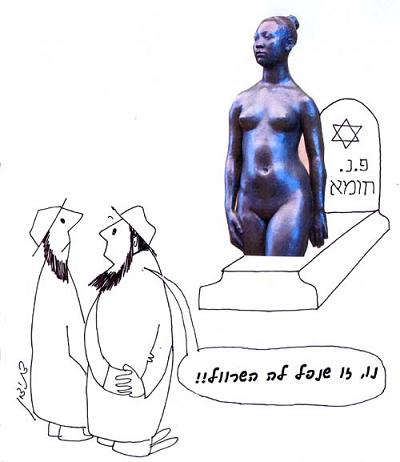
A woman who, according to Halacha, is awarded maintenance (one who is separated from her husband, a widow who receives such money from the orphans’ property…) was allotted money by the sages in accordance with her needs. For example, they ruled that she must be provided with two meals a day, oil, figs for dessert, clothing and shoes, etc. One of the sages, R’ Elazar, ruled that wine should not be included in the maintenance monies, for women do not customarily drink wine, since it arouses their sexual desires. The scholars noted that some may wonder, for from the words of the Scriptures it is implied that women do customarily drink wine, as is written “I will follow my lovers who give me my bread…and drink” (Hosea 2:7) and that drink may be wine, but they rejected this possibility and defined the word from the root of “desire” and not “drink,” stating that these are things which women desire. And what is it that women desire? Jewelry! And if you ask, the scholars further noted, that the Scriptures imply women drink wine, one of the sages brought proof from the Scriptures that women do not customarily drink wine, and so wine is not included in the woman’s maintenance monies. It is written of Chana “So Chana rose up after she had eaten in Shiloh, and after drinking” (I Samuel 1:9), which means, using grammatical precision in interpreting the verse, that it was her husband who drank and not Chana. The scholars asked: If so, if you say that only her husband drank, you should say that only Chana ate, and her husband did not. Answer: Since Chana is the subject of the sentence and the grammar for drinking differs from what would be expected, it means that the husband drank wine and Chana did not. Another proof that it is not customary amongst women to drink wine is found in the words of the sages: when a woman drinks one cup of wine it is becoming to her, two cups denigrates her, three makes her crave sex, and after four cups she would even have sexual relations with a donkey in the marketplace. A different sage, Rava, limited this restriction and argued that a woman may drink wine with her husband. (If she craves sex, there’s no problem if she has relations with her husband.) The scholars asked about this, for did it not say that Chana did not drink wine though her husband Elkana was with her? Answer: The reason Chana did not drink wine, despite her husband being with her, is that they were lodged in the house of the priest Eli, and the sages taught that guests should not have sexual relations in another’s home. Therefore Chana did not drink wine, even though her husband was with her, lest the wine cause her to desire sex and she would have sexual relations with her husband in the home of their guest, the priest Eli. There was an incident with Choma, the widow of the sage Abaye. She went to the court of the sage Rava to ask for maintenance monies from her sons’ inheritance, including money for wine. The sage told her that he knew her late husband did not customarily drink wine, so she was not due money for wine. She lifted her arm and stated that her husband used to give her wine out of goblets the size of her forearm. When she lifted her arm her sleeve fell away, and her forearm was exposed to the sight of the sage Rava. This caused strong sexual tension in the court, as though a primal light shone. Rava, who was greatly aroused, was forced to leave the court and go home to have sexual relations with his wife. When his wife became aware of Rava’s sexual urges she asked him who had been in the court that day. He answered her that Choma, Abaye’s widow, had been in court. Rava’s wife went to the court with an iron lock with which to beat Choma, the widow of Abaye, and chased her out beyond town. She told Choma: “Is it not enough that you have killed three husbands [Choma was thrice widowed]? Do you want to kill another and so came to show your beauty and reveal your arm?”
(Babylonian Talmud, Tractate Ketubot 65a)
